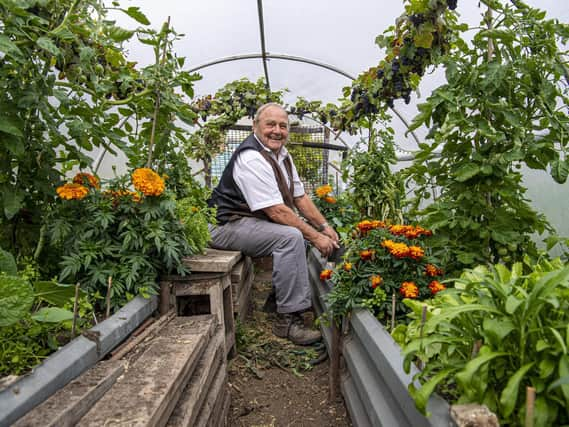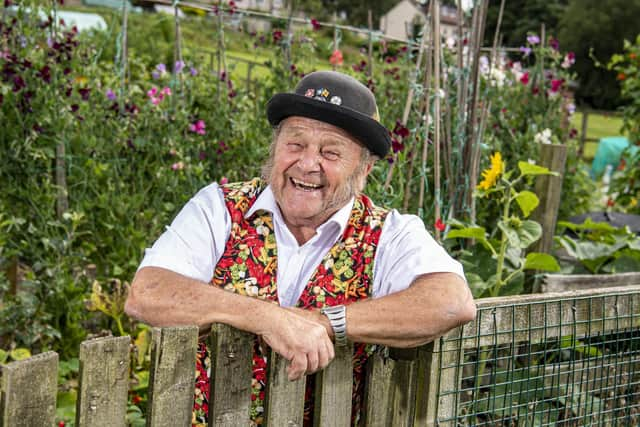National Allotments Week: Public demand for allotments show no sign of slowing down


Waiting lists have been commonplace for years, with interest surging last year when the pandemic turned more and more minds to the benefits and value of outdoor life.
This year’s National Allotments Week, which draws to a close tomorrow(SUN 15AUG), has been celebrating the contribution an estimated half a million plot-holders make to a sustainable future.
Advertisement
Hide AdAdvertisement
Hide AdRunning since 2002, the annual week was created by the National Allotment Society, whose president is Leeds born and bred allotment veteran Phil Gomersall.


Secretary of Victory Garden Allotments in Rawdon since 1993, one of a series of positions he’s held in the allotment world, Mr Gomersall’s work was recognised in 2018 when he was awarded the British Empire Medal for his contribution to horticulture in Yorkshire.
He is no doubt about the environmental benefits of allotments, particularly in towns and cities.
“They offer a green lung, especially in urban areas, taking carbon out of the air. There’s also soil improvement, with allotments’ far superior to that of agriculture. It’s more intensively looked after on an allotment – less chemicals, more good stuff like homemade compost.
Advertisement
Hide AdAdvertisement
Hide Ad"It's doing your bit for the climate - by growing your own you're minimising transport miles for food, there's no plastic packaging. It all helps."
There’s also the simple satisfaction of growing your own food.
"I like growing things to eat – I’m not a gardener in the floral sense. It’s good fun – you get a sense of achievement. I like the outdoors as well – most of my life I’ve been outdoors. You have the outdoors, the exercise, the food and I like getting my hands mucky, I love handling soil."
Increased demand and interest has coincided with a marked change in allotment demographics. As Mr Gomersall put it: "It used to be old gents when I first started, now it’s more young ladies and families.”
Advertisement
Hide AdAdvertisement
Hide AdToday’s system of allotments has its roots in the 19th century, when land was given over to the labouring poor to grow food – a much needed measure at a time of rapid industrialisation and no welfare state.
The 1908 Small Holdings and Allotments Act subsequently placed a duty on local authorities to provide sufficient allotments, according to demand. The number surged to 1.5m during the First World War and again during the Second World War when the government created half a million plots as the famous phrase “Dig for Victory” was coined.
Decline followed in the 1950s and 1960s as the era of cheap and easily available mass-produced food began and many allotments were sold off for development.
Interest began to return in the 1970s, due in part to the popular TV series The Good Life, featuring a suburban couple trying to become self-sufficient from the produce of their garden.
Advertisement
Hide AdAdvertisement
Hide AdMr Gomersall said he noticed interest really beginning to rise 20 years ago, with some of the recent increase potentially down to the pandemic and employment insecurity.
“This latest upsurge has outstripped that of The Good Life or anything that’s gone on previously.
"I think the demand is going to stay for some time now. Employment is in disarray and rather than doing it for leisure some will be doing it for necessity to some extent."